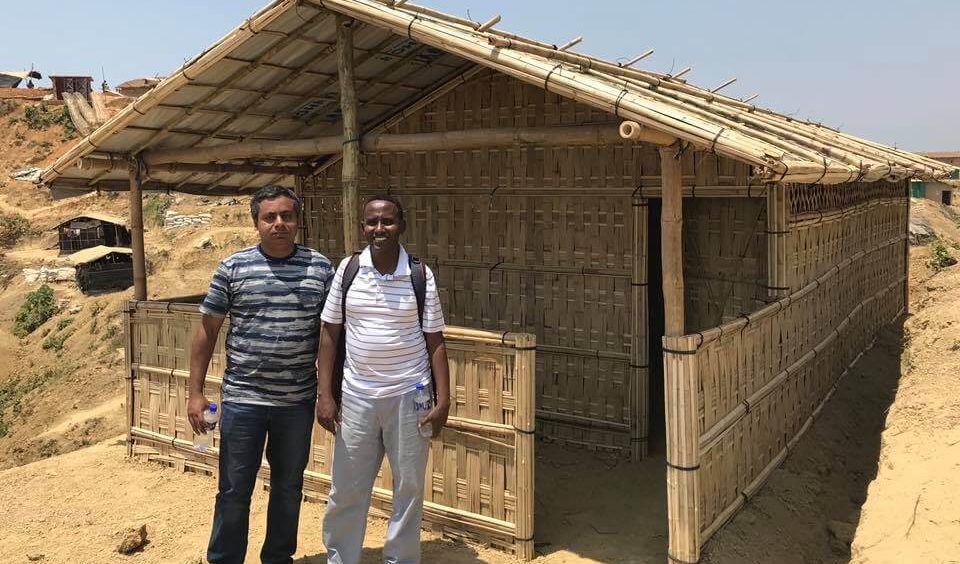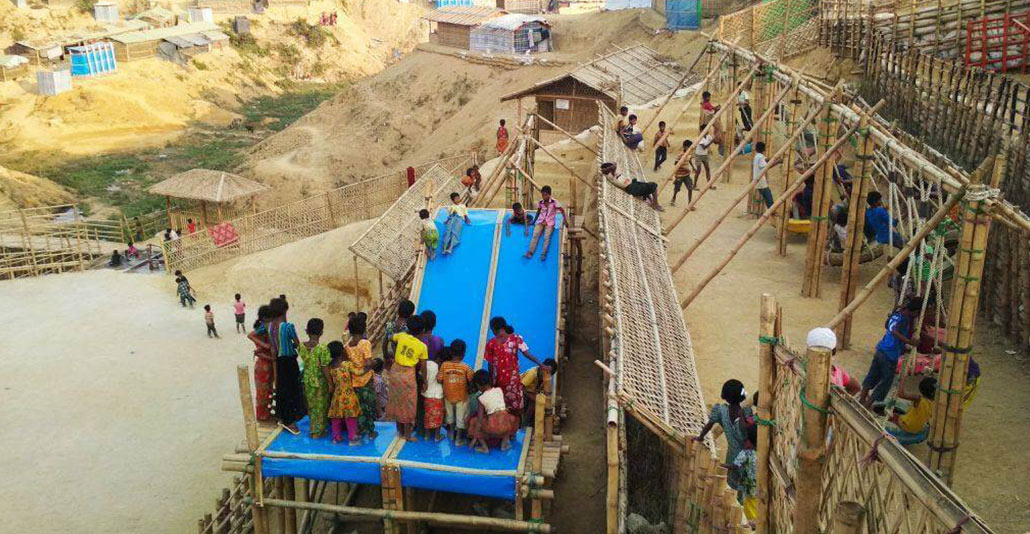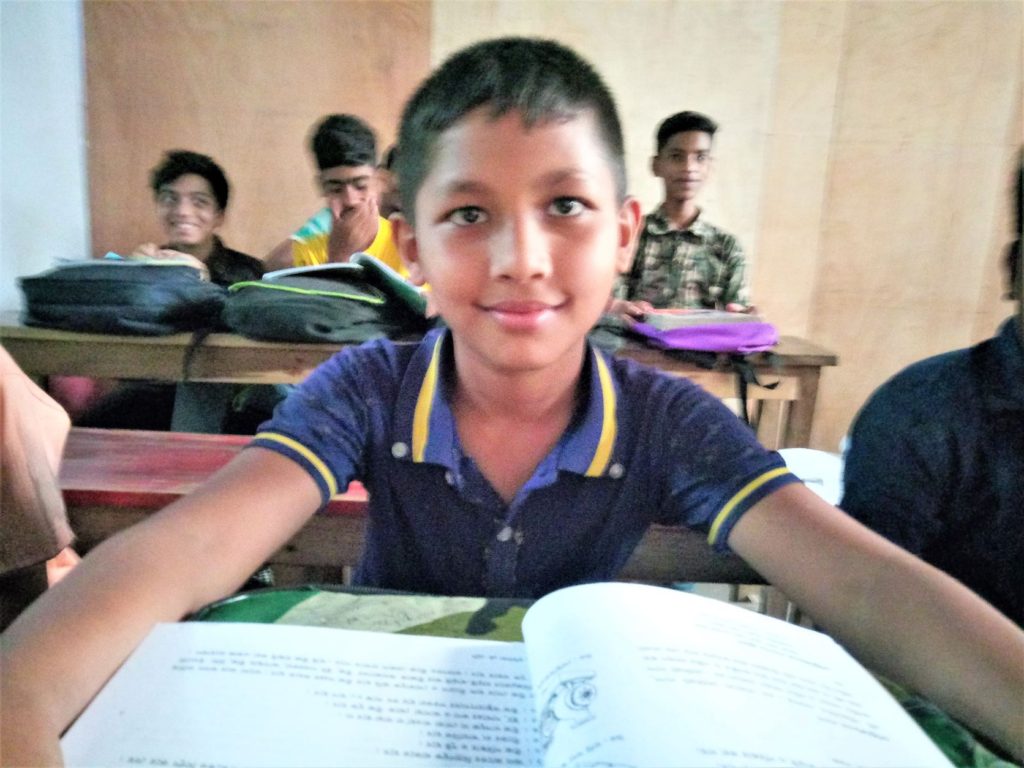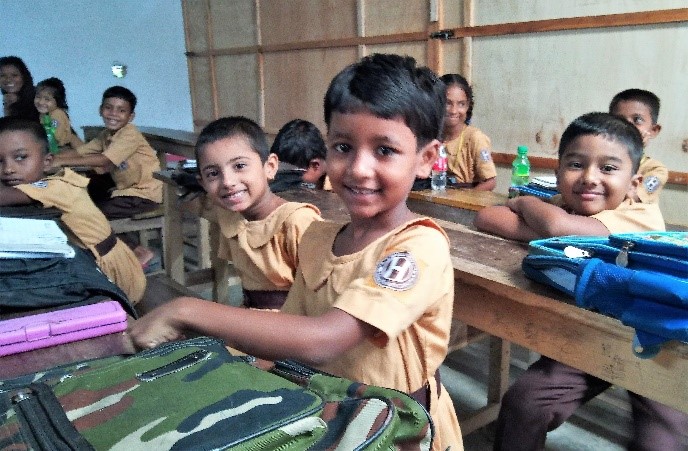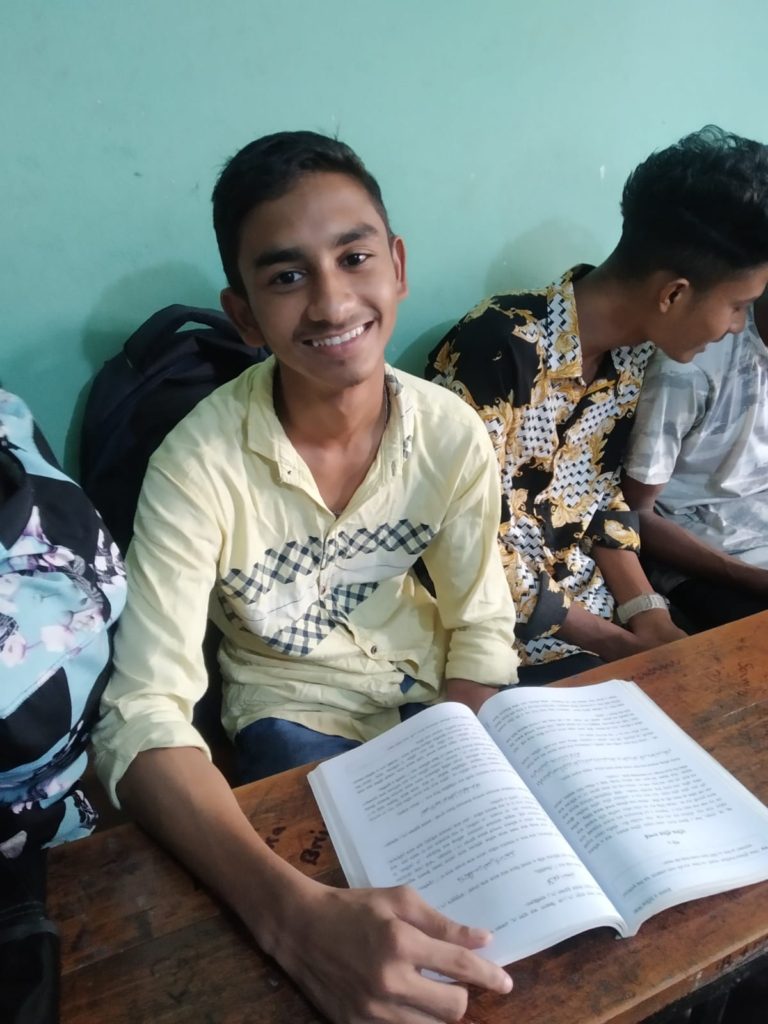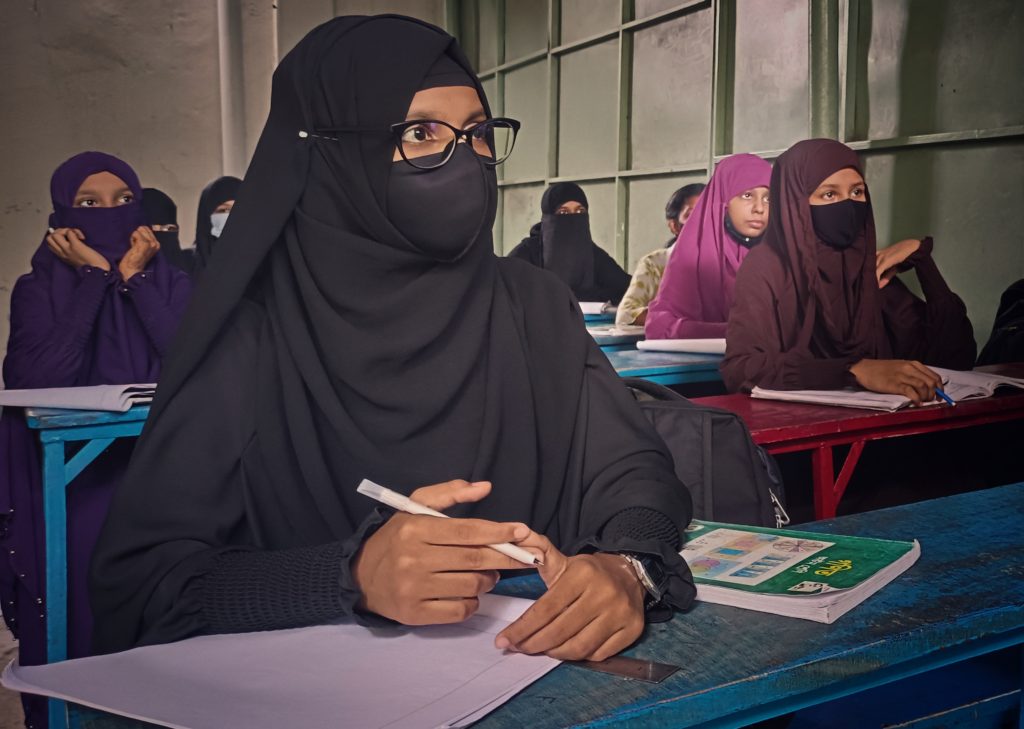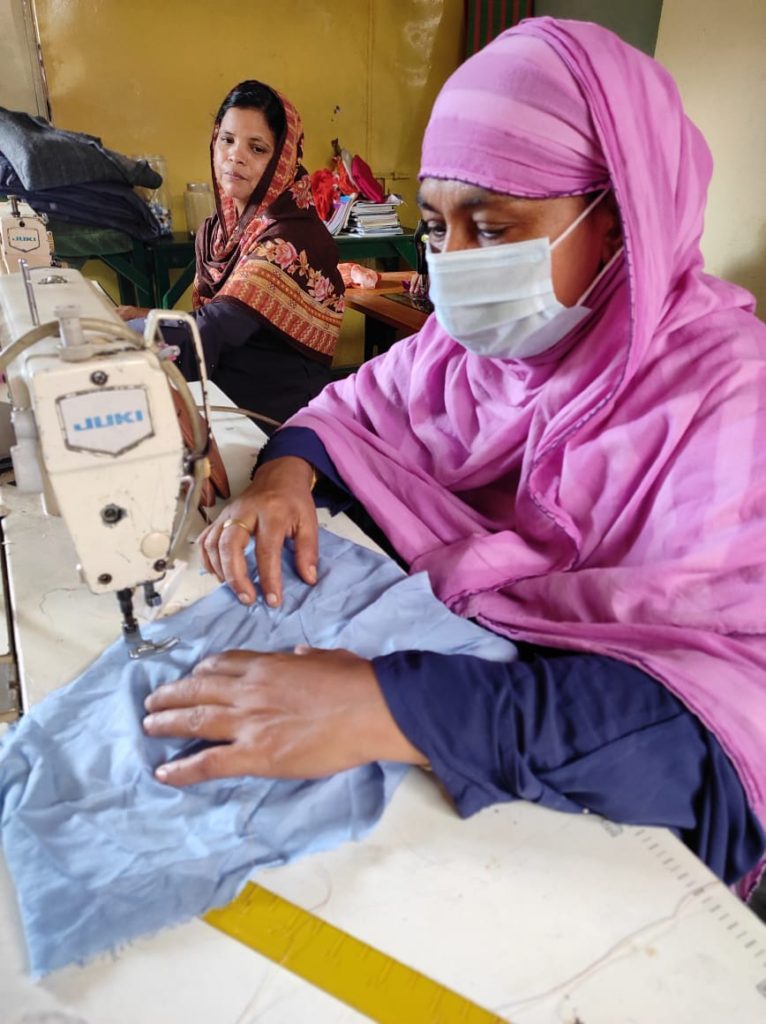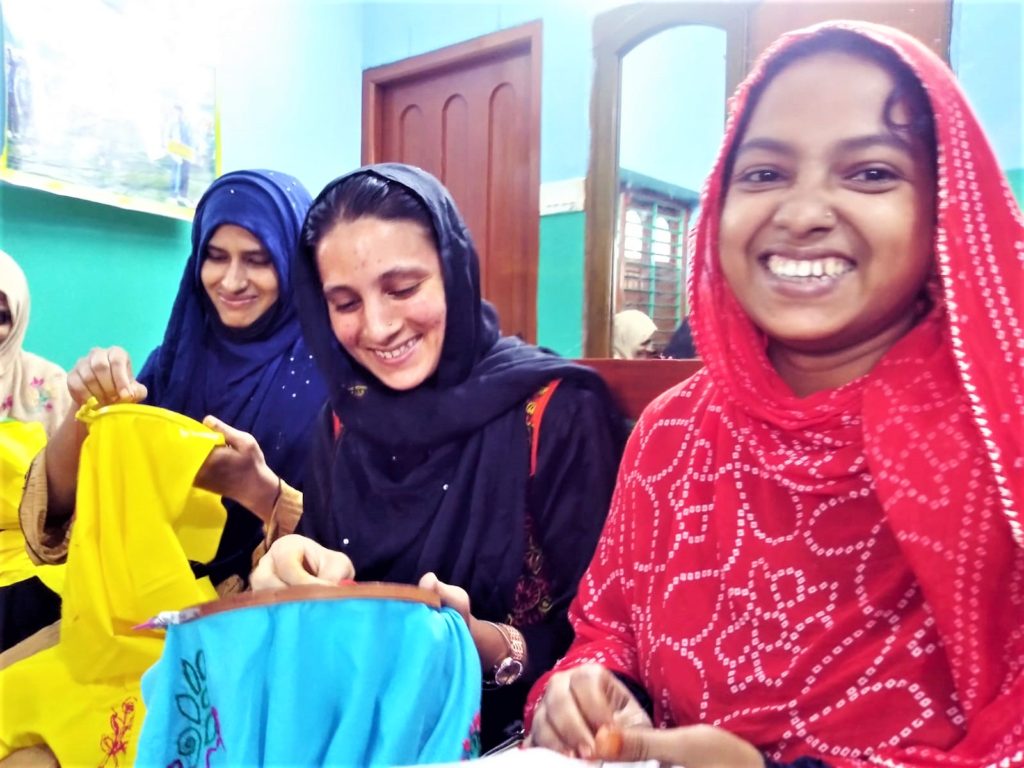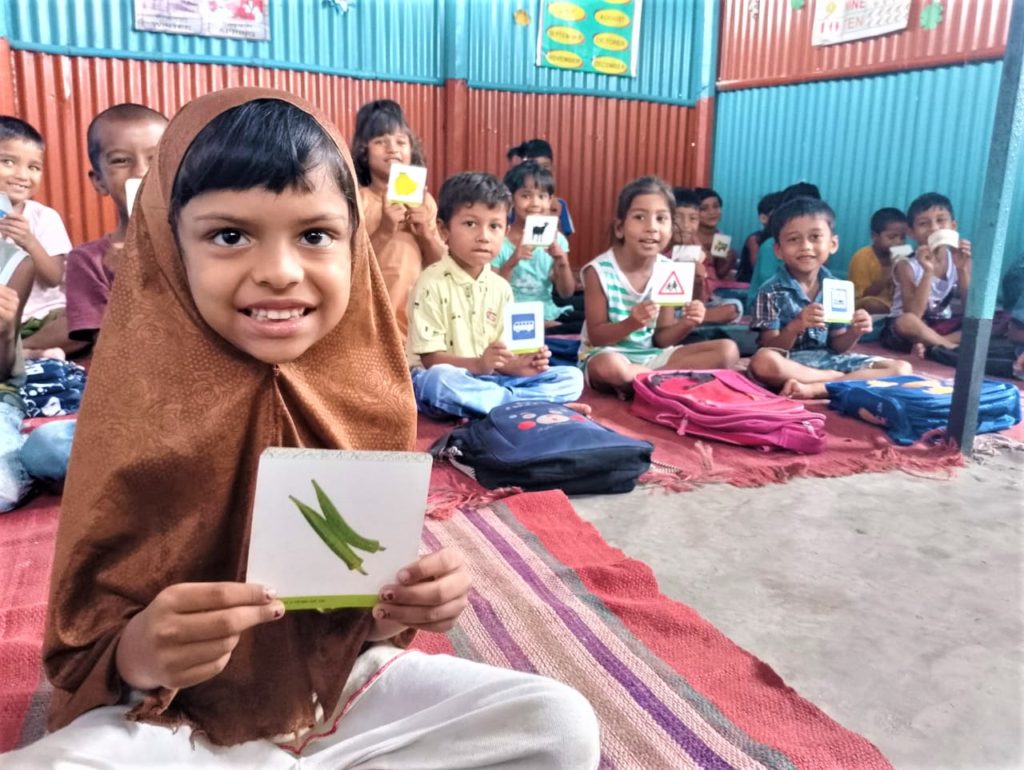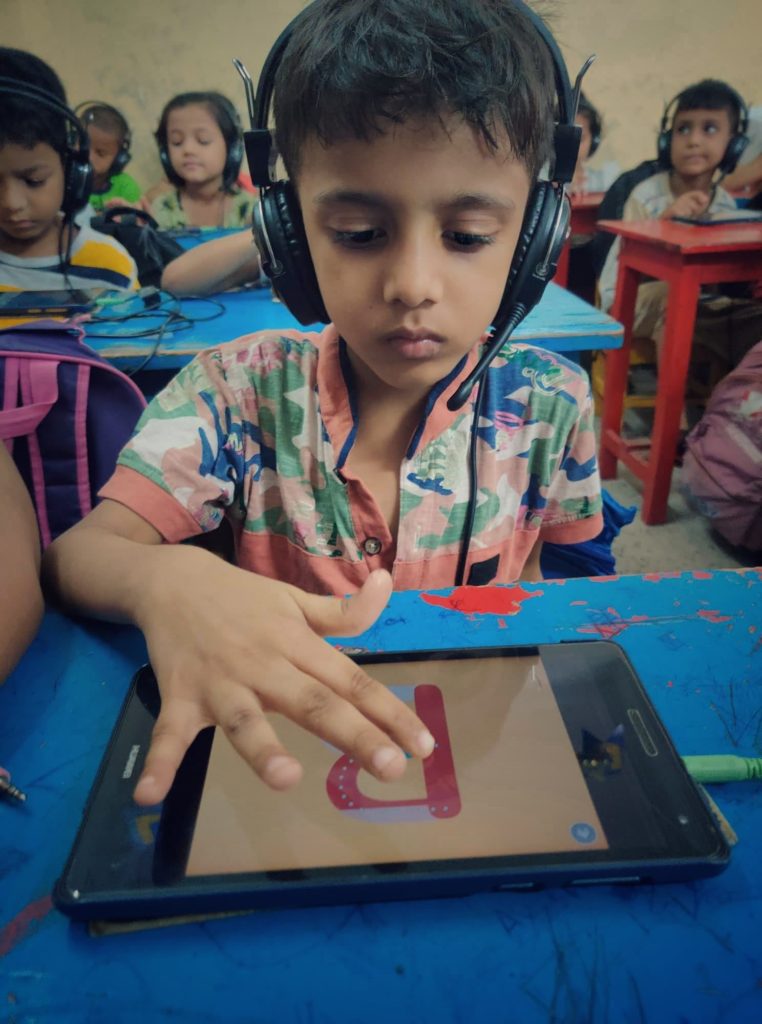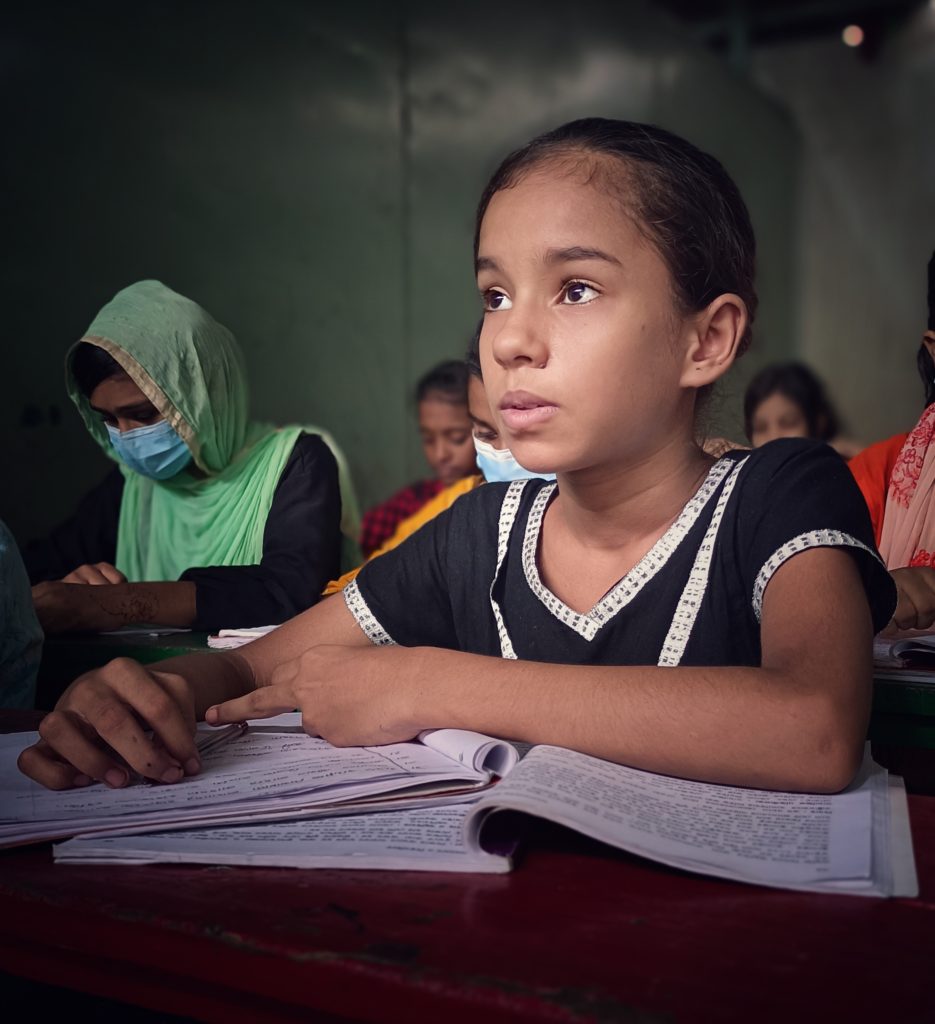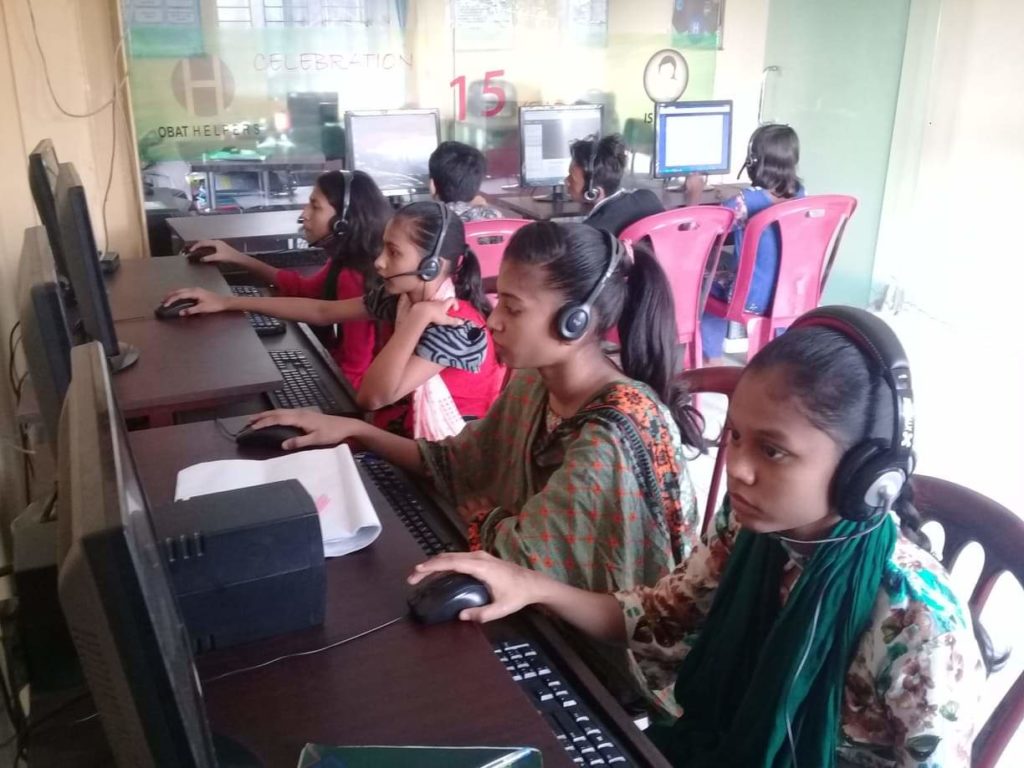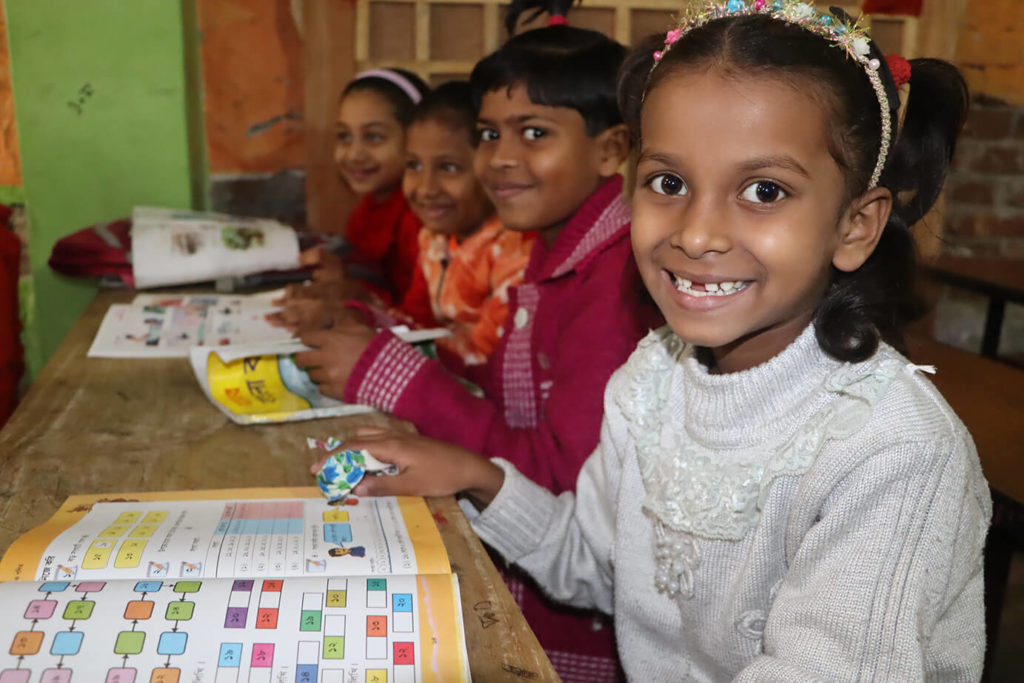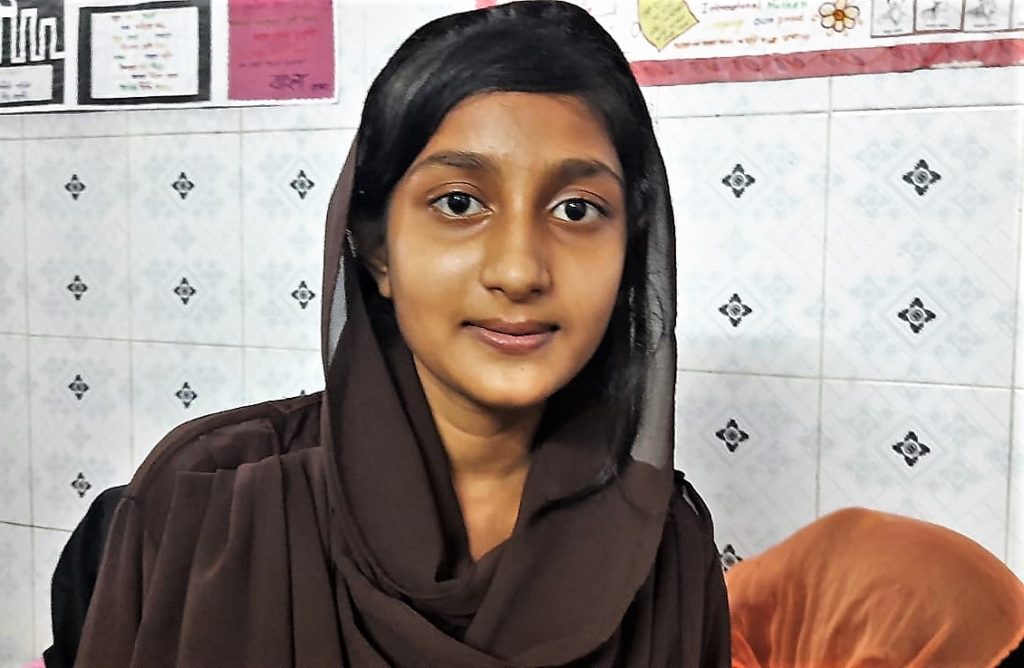 View Large
View Large
Construction of Shelters
In late 2018, OBAT Helpers built 1,504 shelters for families in the Kutupalong and Balukhali camps, in Camp 8W, 5 and 4. OBAT determined that these shelters were constructed in ways that were insufficient to resist strong weather and longer-term use as they were constructed out of tarpaulin and rope. Hence, the organization worked to rebuild these homes for the 1,504 families living in them, helping over 7,520 individuals.
This project was successful with the support and donations from Merciful Group, Love Army, Muslims in Need, American Refugee Committee, Refugee Crisis Foundation, Syria Relief, Hytham Fawzy and Shazia.
Distribution of Shelter Kits
OBAT Helpers has distributed 4,600 shelter kits to Rohingya refugee families in partnership with the International Organization of Migration (IOM). The distribution occurred in 19 blocks in the Balukhali, Tankkhali and Kutupalong camps, reaching approximately 23,000 people total. The kits have been used by Rohingya families to reinforce their existing shelter structures, adding extra support to their homes for cases of extreme weather.The homes of Rohingya refugees in the camps of Cox’s Bazar are typically structurally weak and unstable. This poses large and dangerous problems during extreme weather, particularly during the monsoon season from May to October. The shelter kits distributed by OBAT Helpers provide extra protection against the commonly-faced natural calamities in the camps, such as floods, strong winds and landslides. By providing refugee families with the necessary materials to strengthen their homes, the need to rebuild after challenging weather or natural disasters will be greatly reduced.
Installation of Tube Wells
In March 2018, OBAT Helpers began the now completed installation of 82 deep tubewells. The wells were constructed to support and improve the health outcomes of Rohingya refugees. The wells were constructed in partnership with Alight, previously known as, American Refugee Committe, and Love Army. They are still standing and in popular use today.
There are many diseases spreading in Rohingya camps, such as Cholera, Hepatitis A, Malaria, Polio (Infantile Paralysis), Arsenicosis, Typhoid Fever, diarrhea, dysentery and Trachoma (eye infection). The Rohingya population is at risk of contracting these diseases, due to drinking unsafe and contaminated water.
Therefore, the project aims to provide clean and safe drinking water to the men, women and children living in the surrounding areas of the deep tube wells, making their life healthy and decreasing the chances of contracting diseases through contamination.
The deep tubewells have been intentionally installed around OBAT’s Learning Centers and Primary Healthcare Center so that children and patients can have easy access to clean and safe water.
Approximately 39,000 people are benefiting from drinking safe and clean water in the Kutapalong camp where the deep tubewells are installed. This has greatly impacted the general well-being of the Rohingya community as it has decreased the overall risk of attaining water-borne diseases as well as improving health conditions by increasing the amounts of water individuals are drinking each day.
Construction of Bridges and Pathways
In late 2017 and early 2018, OBAT Helpers constructed nine bridges and twelve pathways in the Camps 4 and 8W of the Balukhali and Kutupalong Rohingya refugee camps. By providing this integral infrastructure, OBAT is assisting around 10,000 people who live in the area by providing them with sturdy paths and crossings that allow them to navigate the rocky and hilly terrain of the camps.
The bridges and pathways are made of strong bamboo and sandbags, and are still standing to this day. With the help of other NGOs and people who live nearby to the infrastructure, they have been promptly repaired each time they have suffered damage due to heavy use.
Construction of Playground
In 2018, OBAT Helpers and United4Charity built a children’s playground for Rohingya children to enjoy in their camp. The park served to create a safe space for these children to play and be kids, allowing them to achieve some semblance of normality and childhood whilst living in the challenging conditions of the refugee camp. Over 500 children in the Rohingya community are estimated to have benefited from the construction of the park, based on estimates of the number of children living in its vicinity. The park was designed by an OBAT volunteer, Yasmin, who is an architect.
Community Centers
Two community centers were constructed by OBAT Helpers in late 2017, in order to foster a sense of community at the camp and provide infrastructure that is not only practical, but brings people together as well. The community spaces are located in Camp 4 of Kutupalong refugee camp and provide areas for men and women to gather and socialize as they please, as well as conduct meetings, trainings and gatherings. To support the general operations of the camp and other NGOs operating in the area, the space is a recognized location where organizations and groups can apply to OBAT to hold training sessions and community meetings.
The traumatizing effects of displacement are stark in the Rohingya refugee camps, and thus the importance of rebuilding and maintaining a sense of culture and community is paramount. By providing community spaces to serve as social hubs and meeting places, OBAT aims to bring back a sense of dignity and normality into the lives of Rohingya refugees.
Additionally, by allowing other NGOs and groups to hold sessions in the community centers, OBAT is aiming to support the overall smooth-running of operations in the camp, whilst encouraging collaboration and support among the NGO community in Cox’s Bazar.
Edie’s Community Kitchen
The Community Kitchen constructed by OBAT, called “Edie’s Kitchen, is a safe place for the Rohingya community to cook and prepare their meals. It is also a safe communal space where the Camp in Charge and any partner agencies can locate their own meal distribution projects. The project aims to cater to 400 Rohingya families which live in the immediate vicinity of the Community Kitchen, benefiting approximately 2,000 individuals.
Edie’s Kitchen will also be available for Rohingya refugees to use for special events and gatherings, such as weddings and religious festivities. This will serve to enhance the sense of community in the camp and support important Rohingya celebrations. During emergencies, such as landslides and flooding, the Community Kitchen will be a safe and protected space for refugees to use their own individual stove tops. This will enable them to to cook their personal meals for their family during such natural disasters, as well as during the rainy season or at times when they don’t have access to fuel.

